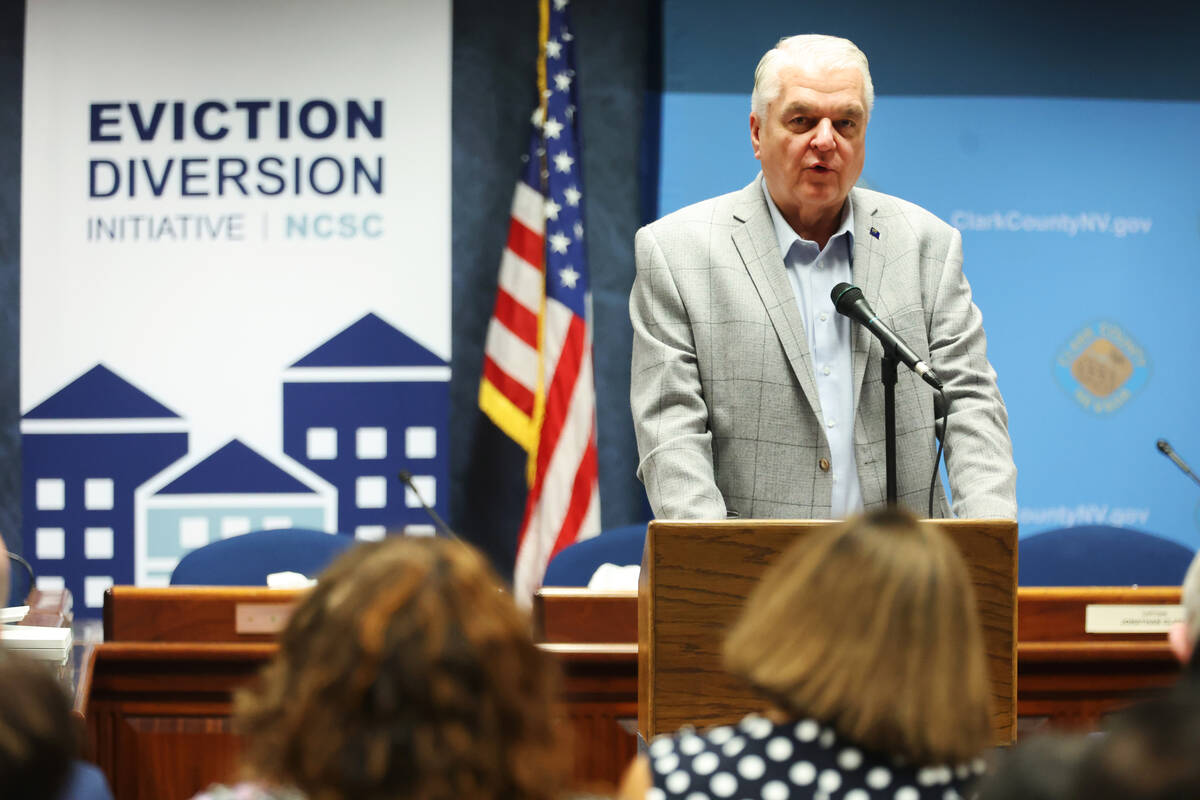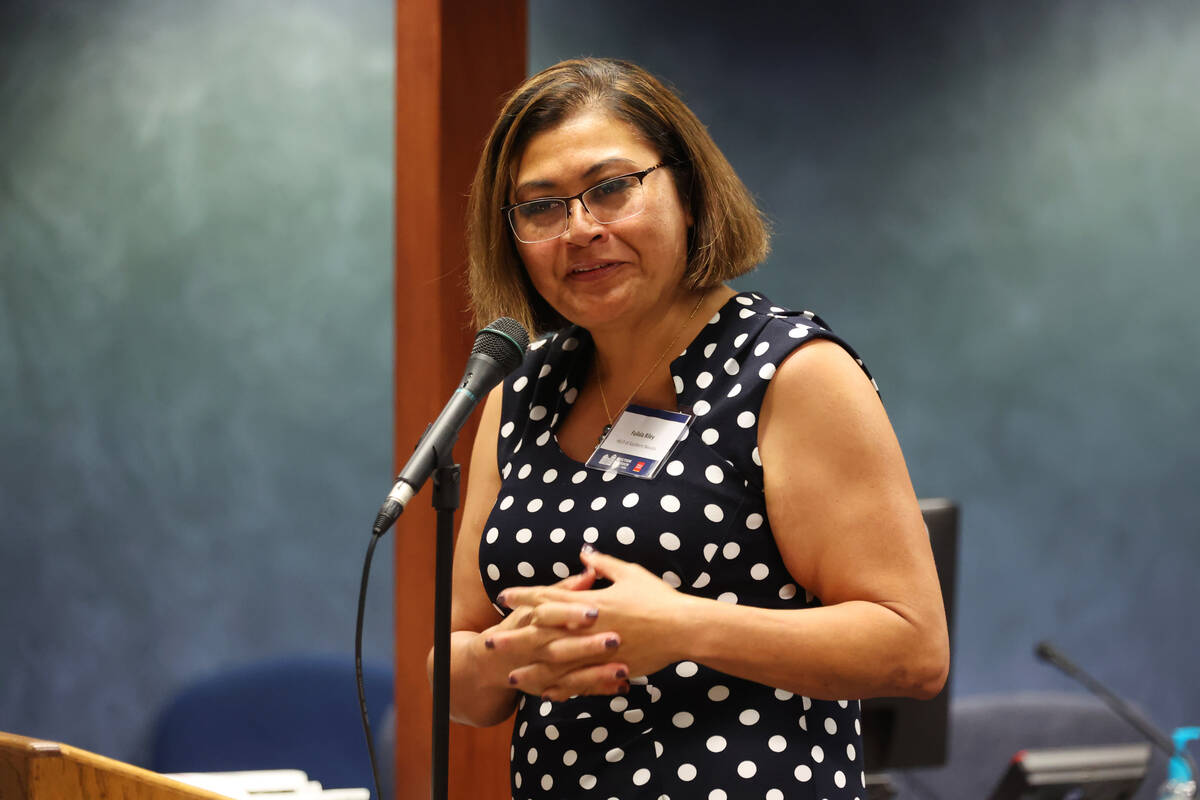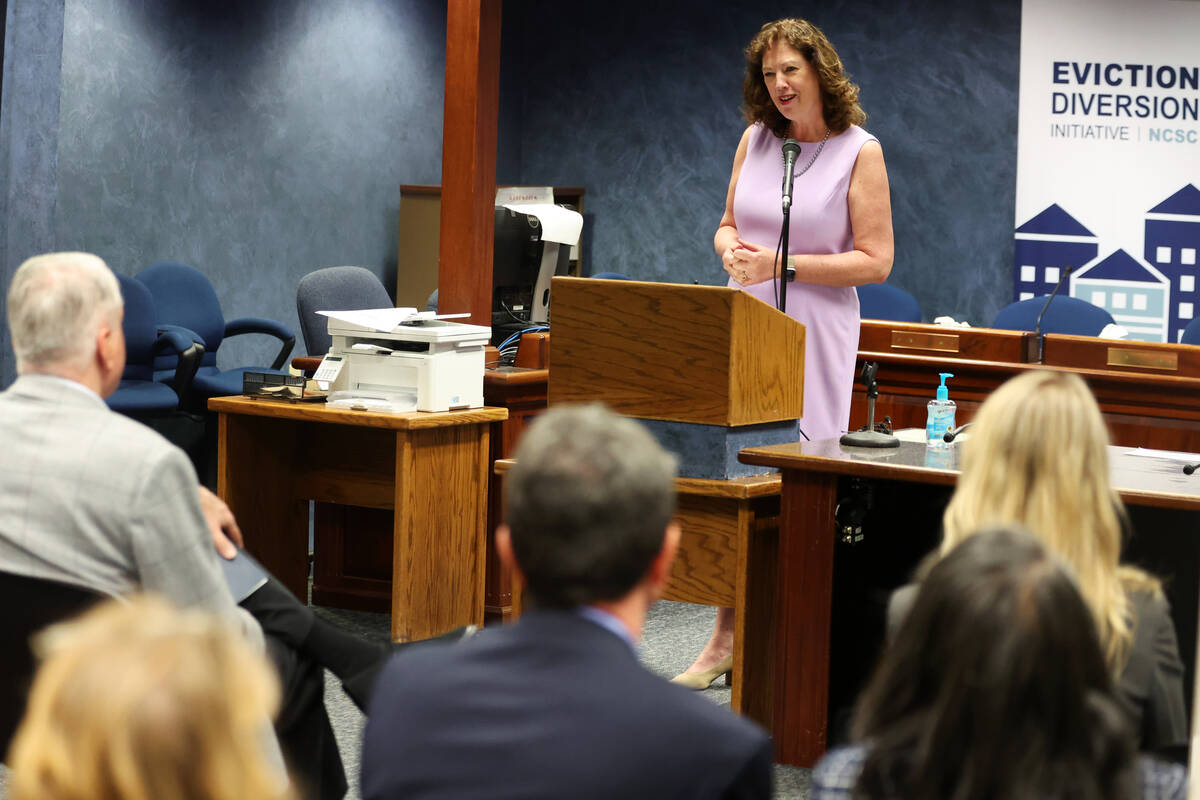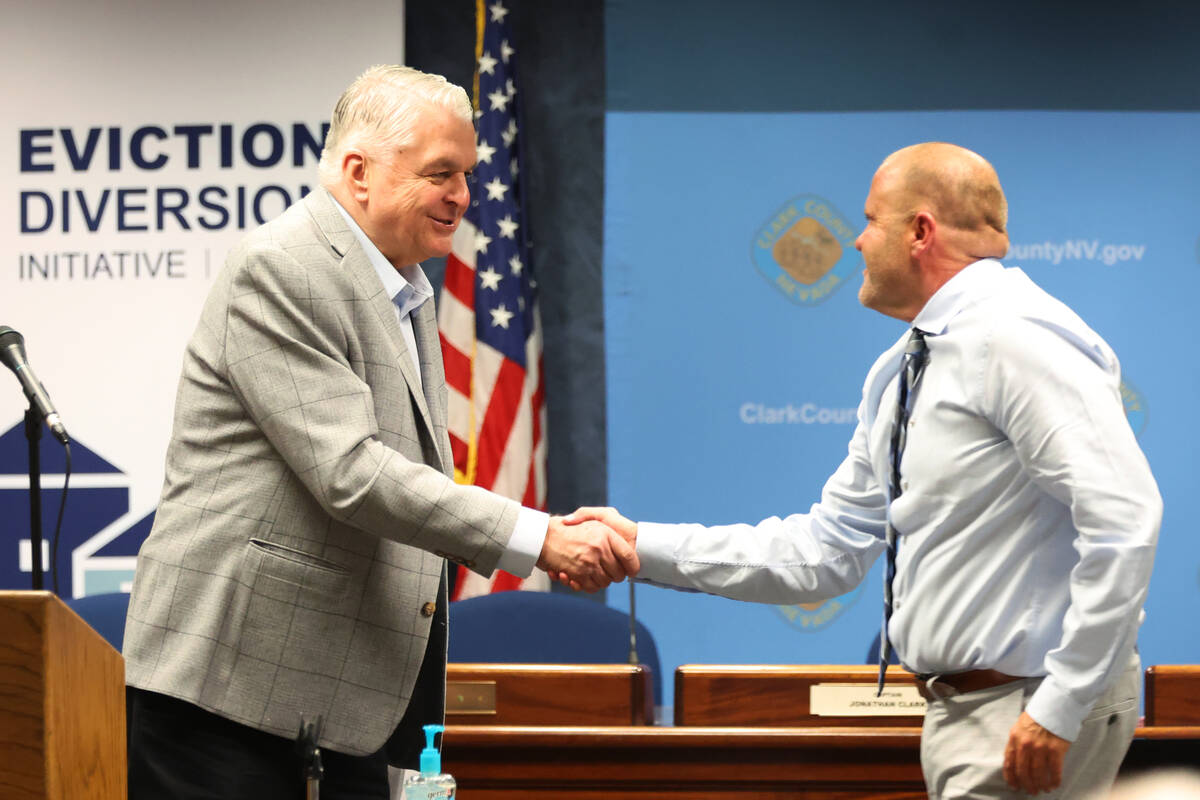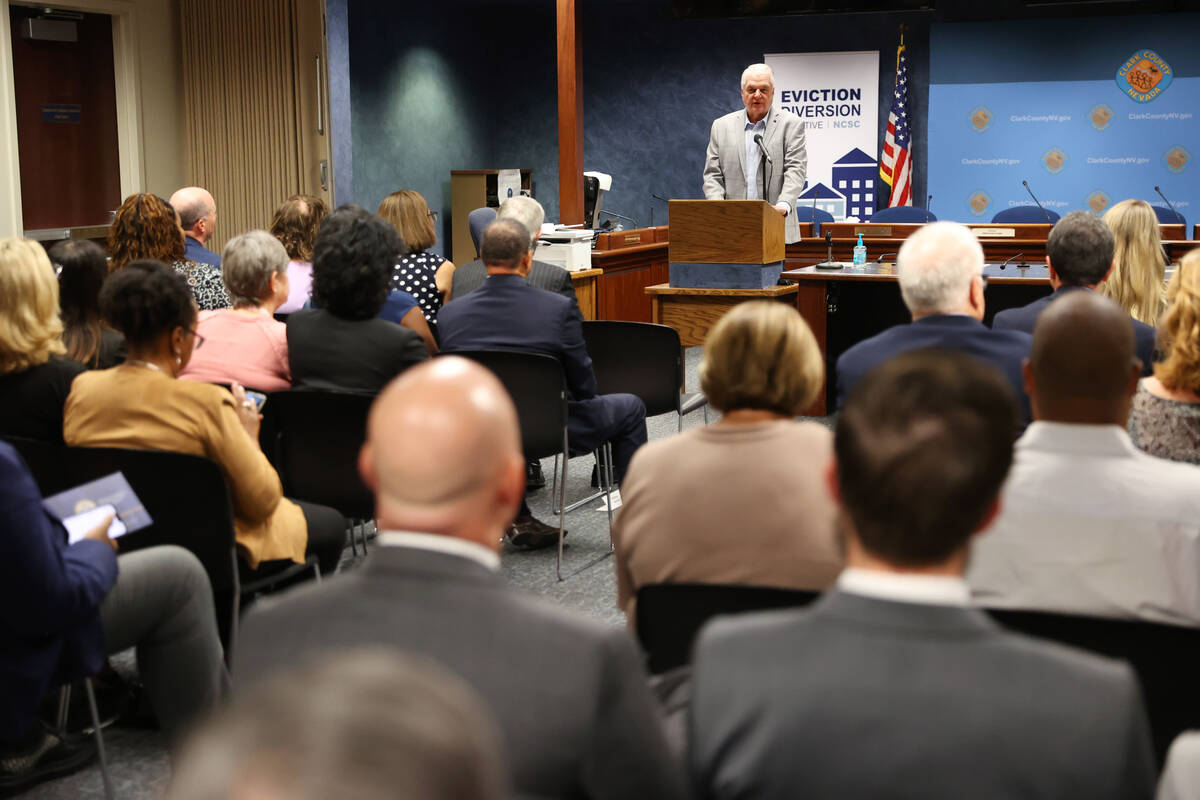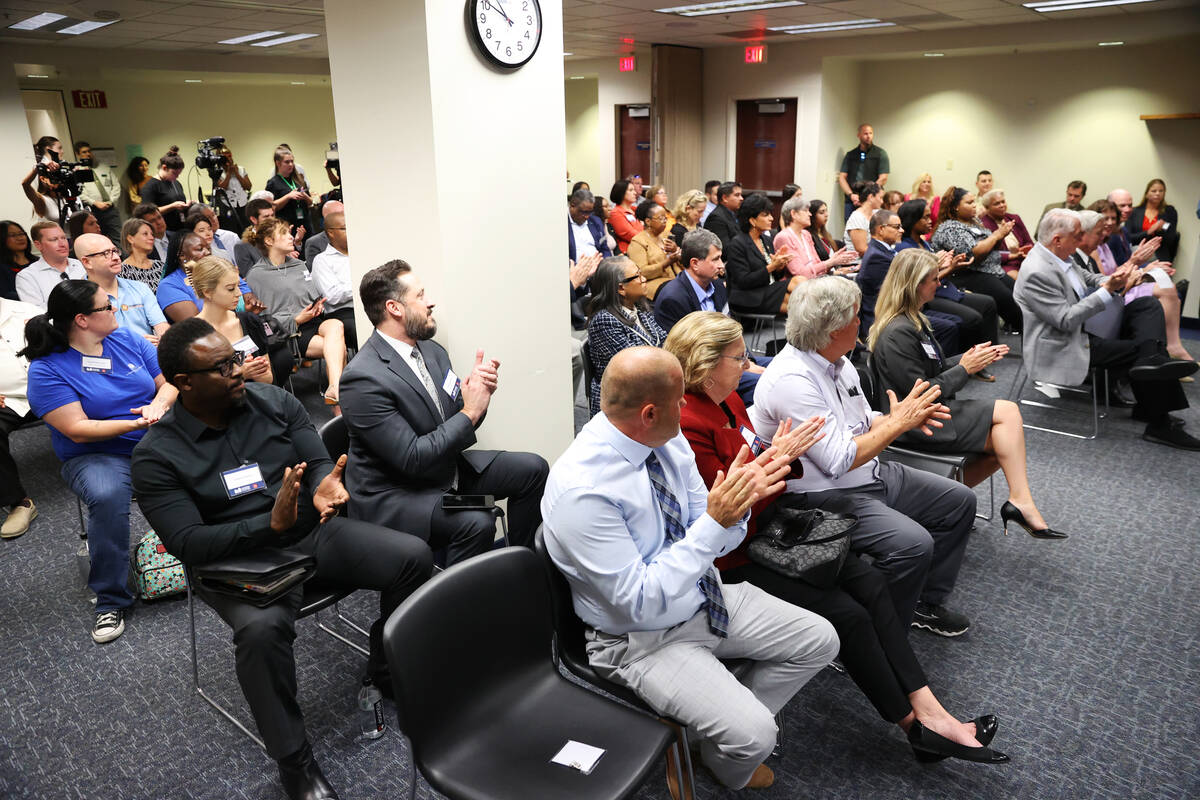More help coming for those facing eviction in Clark County
Help is coming for those facing eviction as the post-pandemic affordable housing crisis continues to unfold in Clark County.
A cadre of officials on Wednesday unveiled a new Las Vegas Justice Court-based diversion program that may help thousands in such legal predicaments.
The $1.25 million funding to establish the program, which will “marry” the court with county social services and legal assistance, comes in the form of a Wells Fargo grant through the National Center for State Courts.
Its goal is to get social services and legal aid to renters facing eviction at the beginning of the court proceedings, rather than after they’re locked out of their homes, officials said at the Grant Sawyer State Office Building Wednesday. The county said the initiative will launch in November.
“Successful eviction diversion programs provide landlords and tenants with the time, information and resources necessary to resolve their housing problems without prolonged litigation,” the county wrote in a news release. “But courts must hire dedicated staff to implement holistic, sustainable and community-driven strategies for resolving legal problems.”
For its first round of funding, Wells Fargo said it provided $10 million to help a dozen jurisdictions across the U.S. to implement similar programs. The grant requires recipients to maintain data to better understand any trends in an effort to more effectively distribute the aid in the future, according to the bank.
“Every Nevadan deserves a home to feel a sense of stability to themselves and their families,” Gov. Steve Sisolak said. “It doesn’t get us to the finish line, but it’s a big step forward and there’s more work to do — we can’t and we won’t stop here.”
Clark County said in a typical year, Justice Court handles about 30,000 evictions, but that the number had ballooned to roughly 45,000 in 2021, the same year a federal eviction moratorium established during the COVID-19 pandemic was lifted.
Las Vegas Chief Justice of the Peace Melissa Saragosa, who helped spearhead the program, noted that historically, 72 percent of all evictions in Nevada occur locally.
“It is a true burden on the court system,” she told reporters. “The numbers have increased, but our staff has not.”
And while COVID-19 hardships brought government rental assistance, the new program is forward-looking and designed to “bring us out of the pandemic,” she added.
Navigating the system
Anthony Malone, a Clark County social service manager, described the approach as “holistic,” noting that while there is currently help available, “they just don’t know where to go.”
After someone is evicted, they typically need to find a new place to live “very quickly,” not giving social services time to provide already-available resources, Saragosa said. The new program will “front-load those resources and services to try to rehouse people without just a lockout and no follow-on plan.”
The program will team social workers in the Las Vegas court process for the first time.
Saragosa said she realized that the court would work in a “silo” when determining whether to issue an eviction order.
“The court had no idea what was happening beyond that,” she said in a round-table discussion at the event. “We didn’t recognize that.”
Ahead of the curve
In deciding to apply for the grant, Saragosa said she began to wonder: “Why are we waiting until the lockdown happens to provide somebody with social services? That seems like way, way down the road in the game.”
Fuilala Riley, president and CEO of the Help of Southern Nevada nonprofit, called the program’s announcement “a momentous sort of celebration.”
Barbara Buckley, executive director of Legal Aid of Southern Nevada, said that nationally, people of color, particularly Black Americans and Latinos, are overwhelmingly impacted by evictions.
Metropolitan Police Capt. Jonathan Clark, who heads the county constable’s office in charge of booting people out of their homes when the court issues an eviction order, noted that no one should have to chose between pertinent needs and paying rent.
“Evictions affect our whole community,” he said, pointing out that constables, who are often retired police officers, “never enjoy kicking a family out of their home. It’s never a good day for them.”
Contact Ricardo Torres-Cortez at rtorres@reviewjournal.com. Follow @rickytwrites on Twitter.



